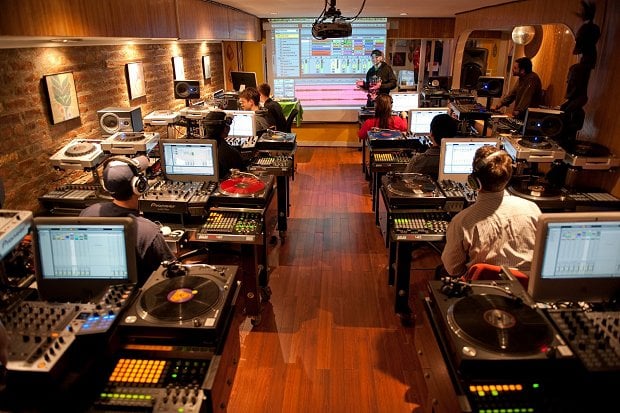 Image via youtube.com
Image via youtube.com
Producing your own music is a liberating, creative art. Several extremely successful musicians write, perform, and produce their own music, such as Kanye West, James Blake, and Dr. Dre. While we do recommend working with professional producers who can take your music to the next level, it's beneficial to learn your own way around the production world. If you have a digital audio workstation or you're thinking of purchasing one, here are a few ways to get better at producing your own beats.
Tutorials
The internet is your oyster. In the modern era of teaching yourself from home, you have an abundance of information at your fingertips. YouTube alone has thousands and thousands of free tutorials on navigating through DAWs like Ableton, Logic, FL Studio, and Reason. Whether you're completely new to a program or a veteran looking for advice on a certain topic, there's likely a tutorial out there. Often times, DAWs, such as Ableton, will even have their own YouTube channels. Utilize the free tutorials to expedite your learning process on new programs and ensure you're learning the most modern, professional production techniques.
Online courses
Beyond tutorials, there are actual online courses with a teacher, other classmates, and actual feedback on your music. While you normally will have to pay for these, there are freebies. Berklee Online has released several free courses in addition to their world-renowned paid courses. Stanford University is also known for giving out interesting, free, creative music courses. You'll have to search for the free ones, but they're there. Though, if you're serious about taking your talent to the next level, we'd recommend investing a little bit of money in mastering your craft. Dubspot is one of the leading online education programs for electronic music producers today, offering a wide variety of production techniques.
In-person courses
Of course, many of us want to learn in person. Unfortunately, these in-person courses are typically reserved for larger cities such as New York, LA, or London. But it never hurts to seek out your local area to see if there's a program near you. Dubspot also offers its program in-person throughout the New York area. Manchester Midi School in England offers a full-range program in music production. Production-only courses are still relatively new, so you may have to settle for what's online, but if you can attend a course in your city, it'll be worth your time.
If you're looking to dive even deeper, several contemporary music colleges offer bachelor's degrees and diplomas in music production. Berklee College of Music offers an electronic production and design major as well as a music production and engineering major. Depending on where you are as a musician and student, you may want to pursue a college degree towards mastering your craft.
Reaching out
Find the producers in your city who are creating music you aspire to make. Reach out to your local community of musicians to see if they'll let you shadow them for a day in the studio. Most musicians love to help share tips and ideas with other musicians, especially fans. In addition, if your favorite producers aren't in your local area, reach out to them on the web. While we can't guarantee you'll get an email back from Skrillex, you may be able to start a conversation with smaller producers that you admire. The key is to be genuine about your admiration for their music and ask clear questions that are reasonable of their time.
Also, a large part of reaching out means supporting the music you aspire to create. Go out to your local shows and interact with the producers. Nurture the community you want to be a part of, and your skill set and inspiration will grow by exposure.
Trial and error
"If you can't see it, it can't see you." This applies to learning any new DAW. There are endless effects, plugins, tools, samples, instruments, etc. at your creative disposal. If you don't look through the reverb rack, it won't find you. Production is about exploring how different sounds fit together. When making your own beats, there's a limitless range of possible percussive samples. You can take the sound of a nail dropping, pitch it down, EQ it, and make it into a snare. You're going to make thousands of beats that will eternally collect dust on your hard drive, but without making those beats, you won't be able to make the ones that truly shine.
Learn more about producing:
- Should You Produce Your Own Beats?
- The 6 Most Important Things I Learned About DIY Recording From My Tiny Brooklyn Apartment
- How to Find and Use Samples for Your Beats
- 3 Mixing and Mastering Tips From Veteran Audio Engineer Daniel Wyatt
Sam Friedman is an electronic music producer and singer-songwriter based in Brooklyn, NY. His music blends experimental ambience with indie-driven dance music. In addition to pursuing his own music, he is a New Music Editor for Unrecorded and is passionate about music journalism. Check out his music and follow him on Twitter @nerveleak.


